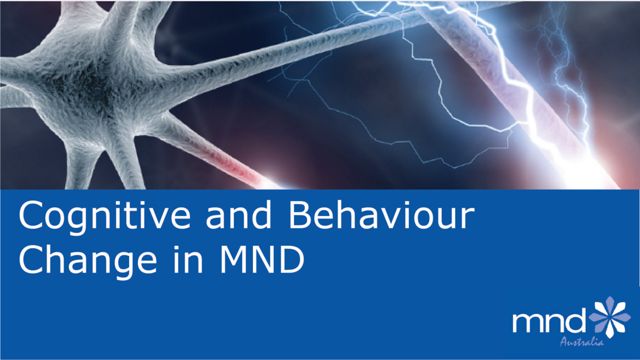This resource provides information on some common cognitive and behaviour changes that may occur for a person living with motor neuron disease.
What you should know
What you should know
- The word “cognition” refers to the thought processes that include thinking, reasoning, awareness, perception or remembering.
- Over 50% of people with MND can experience reduced abilities in thinking and behaviour • Most people experience relatively mild changes.
- A small proportion (5-15%) will show more significant changes and be diagnosed with ‘motor neurone disease with frontotemporal dementia’ or MND/FTD.
- Difficulty concentrating, finding the right words for conversations, solving problems and expressing emotions are some of the symptoms of cognitive and behaviour change in MND.
- A general practitioner (GP), neurologist or specialist MND clinic can assist in diagnosing changes in cognition and behaviour.
Enquire about this resource on Motor Neurone Disease (MND) Australia


 New
New 


